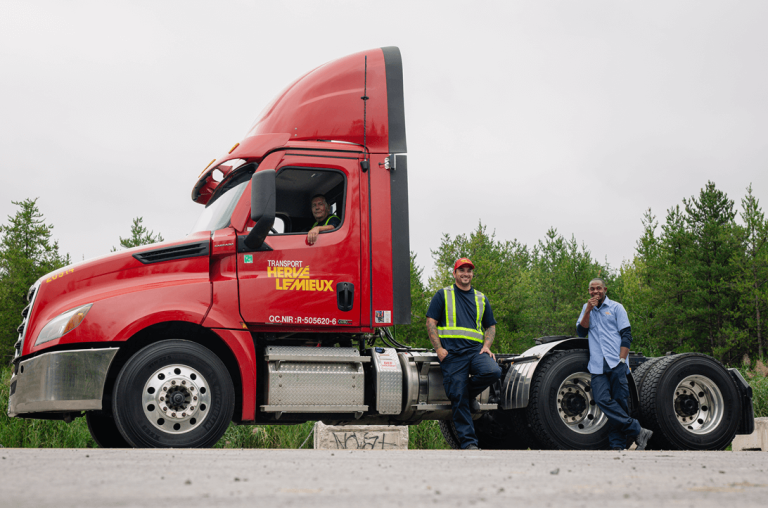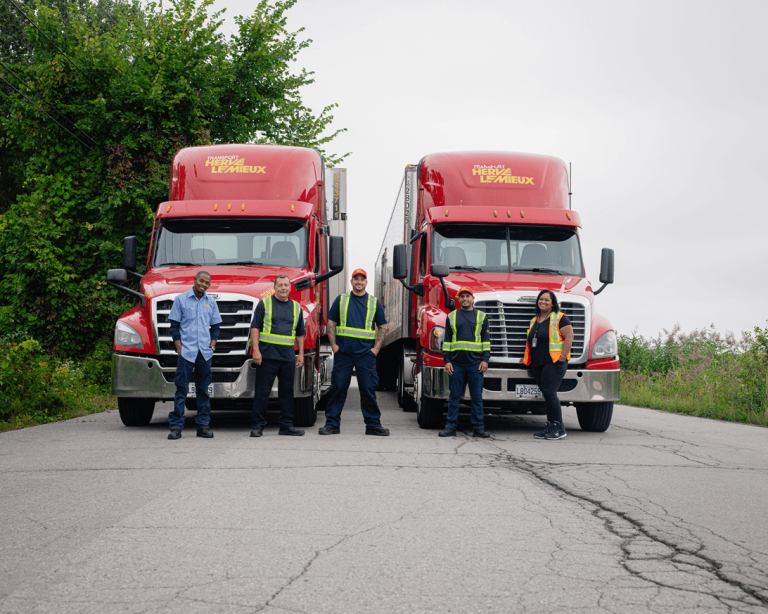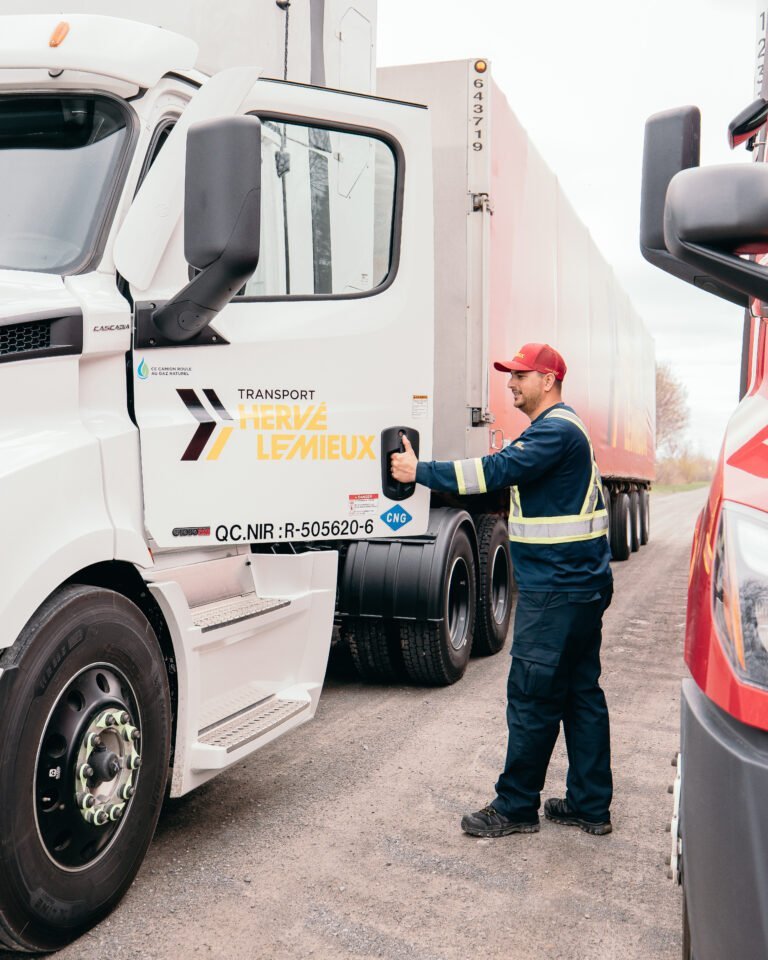The transportation industry, essential to the global economy, is undergoing a major transformation. Technological innovations are redefining the sector, opening up new opportunities for companies like Transport Hervé Lemieux that want to stand out from the competition.
Autonomous driving: a promising future
Autonomous driving is a fascinating technology for the future of the trucking industry. Companies like TuSimple are developing autonomous trucks capable of operating on highways without human intervention. This technology, combining artificial intelligence, advanced sensors and precise navigation systems, could significantly increase delivery efficiency while reducing the risk of accidents. Although companies are actively developing autonomous trucks, the mainstream adoption of this technology will also depend on the evolution of regulations. Legislation must adapt to allow the safe use of these vehicles on our roads. This technology promises to increase delivery efficiency and reduce the risk of accidents, as well as solving the driver shortage problem that has been facing the industry for several years, but it requires a solid regulatory framework for its effective deployment.
The evolution of electric trucks
The electric truck market is growing fast, with a diversification of available models and a continuous improvement in battery autonomy. These developments are crucial to meet the specific needs of heavy-duty transport. In addition, with the increasing number of charging stations adapted to heavy-duty trucks, the switch to electric is becoming more and more viable. For transport companies, investing in electric trucks is becoming increasingly attractive, since it offers numerous advantages, especially in Quebec. Because both levels of government offer large incentives to companies for the purchase of electric trucks, these combined subsidies are generally in excess of $200,000 per vehicle. This amount varies from truck to truck, as it is calculated according to the size of the batteries. In addition to the subsidies, the main benefit is that you don’t have to pay for fuel, a huge expense for transport companies, and maintenance costs are much lower than for diesel trucks. For transport companies, investing in electric trucks is a step towards a more sustainable and economical future. Adopting this technology could not only improve their ecological footprint, but also offer greater operational efficiency with lower costs.
Projects for recharging electric vehicles on the road
In Europe, innovative projects such as the recharging of electric trucks while driving on German highways demonstrate the potential of this technology to solve the problem of limited battery autonomy. The technology works by using catenary wires above the roads and pantographs on top of the trucks, which rub against the catenary wires to enable charging. If similar projects can be implemented on our roads, it could revolutionize long-distance transport by enabling electric trucks to cover greater distances without the need for long breaks for recharging, making electric transport more viable and efficient.
Development of alternative fuels: The hydrogen truck
Hydrogen is emerging as a promising alternative to diesel for trucks. Hydrogen-powered trucks, using fuel cells, offer a clean solution with a range comparable to traditional diesel vehicles. Although this technology is still under development, it represents a major potential for reducing CO2 emissions and moving away from fossil fuels. The development of hydrogen refueling infrastructure is crucial to the adoption of this technology.
Impact on transport companies
These innovations represent significant opportunities for transport companies. The adoption of electric and hydrogen-powered trucks, as well as interest in autonomous driving, requires investment in research and development, but promises increased operational efficiency and reduced environmental impact.
Challenges and prospects
Despite their potential, these innovations present challenges, particularly in terms of initial costs, charging infrastructure and regulations. Nevertheless, the long-term prospects are optimistic. As costs fall and infrastructure improves, these technologies will gradually become more accessible.
In conclusion, reinventing transportation through these technological innovations and revolutions is a complex but essential process. For companies like Transport Hervé Lemieux, it’s an opportunity to position them at the forefront of the transportation industry, adopting new technologies to improve operational efficiency and contribute to a more sustainable future.



